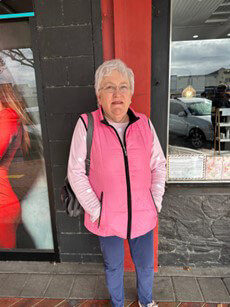National is struggling to get positive engagement over its proposal to cut cell phone use in schools.
The opposition announced last week that cell phone use at school would be banned to “help lift achievement and support every child to make the most out of their education.”
The News sought the views of Waipā secondary school principals.
The ban plan is too simplistic, Cambridge High principal Greg Thornton believes.
Since the start of last year Cambridge High has stopped the use of cell phones during class and Thornton said the move had been a success.
The practical realities of modern society made a full ban less attractive than the school’s present policy.
“We sought feedback and were told parents and guardians needed access to students,” he said.
The issue went beyond cell phones.
“You have watches – what is a device? You have earbuds which are easy to hide.”
Our Wintec journalism students took to the street to ask what people thought of restricting cellphone use.
- Sue Wallace “It is a good idea because phones can be a distraction.”
- Rachel Clarke “It is smart but not practical because banning phones can be a wishful thinking in this generation…banning phones in school can cause young people to think they’re cool by hiding it.
- Ike Crous “I think it’s a good idea because phones can easily distract children and may affect their self-control.”
The News also sought comments from Te Awamutu College and St Peters.
The plan has not been given a pass mark by Secondary Principals’ Association president Vaughan Couillault.
He told AM radio “we don’t necessarily need centralised control and governance over this because schools are already enacting their own policies…”
Prime Minister Chris Hipkins said schools did not need “Christopher Luxon’s permission to ban mobile phones”.
National Party Leader Luxon said students needed to focus on their schoolwork during classroom time to turn around falling achievement levels.
“Many schools here and overseas have experienced positive outcomes, including improved achievement, after banning the use of cell phones,” he said.
“Student achievement has declined over the past three decades, jeopardising kids’ future livelihoods and threatening New Zealand’s future prosperity.”
He said schools would decide how to enforce the ban “but it could mean requiring students to hand in their phones before school, or leave them in their lockers or bags”.
There would be exceptions for students with health conditions or in special circumstances.











